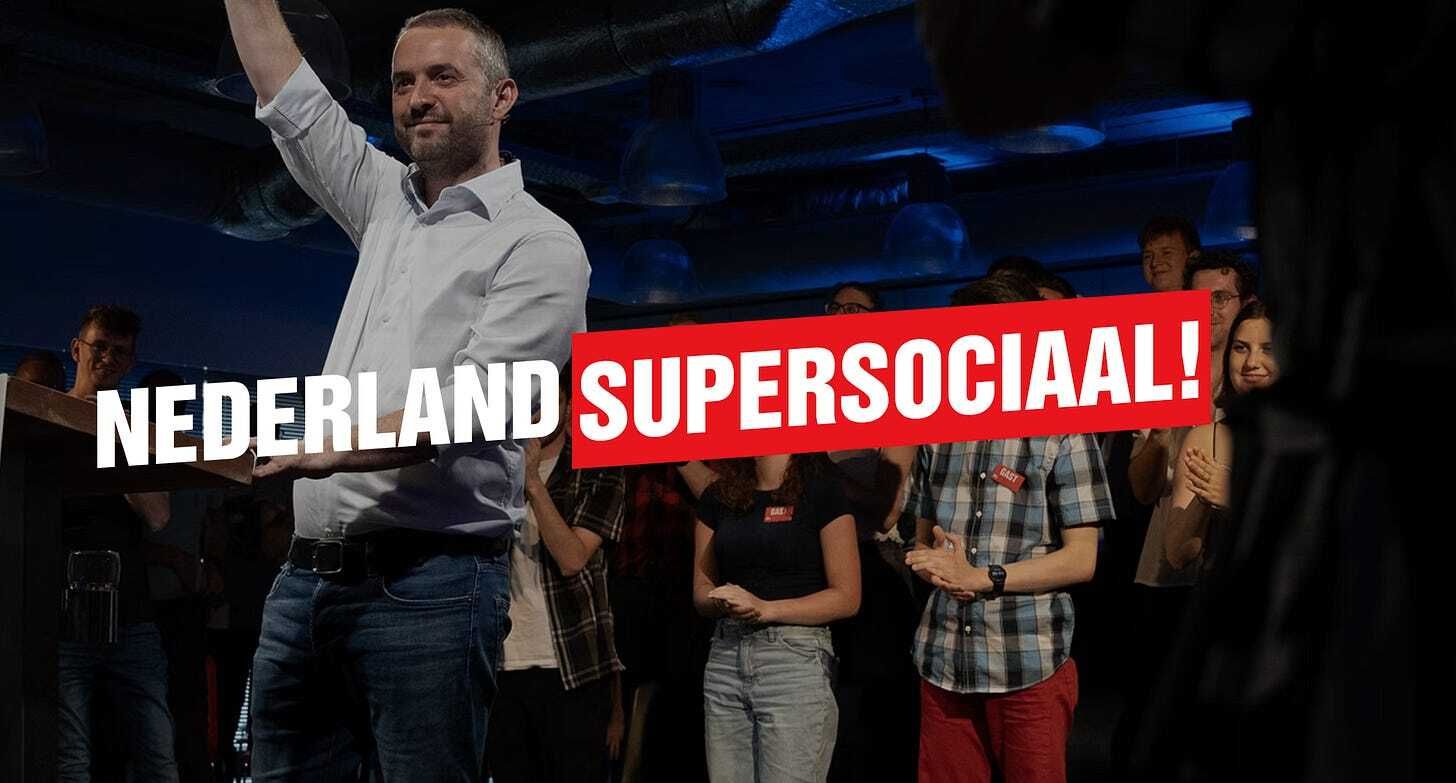
The Socialist Party (SP) has revealed a manifesto that reads like a dream come true for ordinary Dutch households, but critics say it may dream beyond the confines of financial reality.
A Tale of Two Parties
The SP’s manifesto, released shortly after the VVD’s, couldn’t be more different. Where the VVD champions free markets, the SP rails against “profit hunger” and the influence of market forces on the welfare state. It portrays a Netherlands brimming with free services, public transport, childcare, healthcare, and culture, paid for by taxing the wealthy.
Key Proposals at a Glance
Wealth ceiling of €50 million: Anything above must be paid to the treasury
5% millionaires’ tax on assets over €5 million
Departure tax for those moving assets abroad
Higher corporate taxes and prosecution of tax-evading directors
Free public services: public transport, childcare, museums, higher education
Four-day work week with full pay
Minimum wage increase to €18/hour (from €14.40)
Boosted social benefits: AOW, benefits, and frozen social rents
Lower retirement age to 65 and one million affordable homes via a €30 billion housing fund funded through debt
Free solar panel installation, income-based fines, and abolition of the health insurance deductible
Yet, even SP acknowledges the boldness of these ambitions. It refuses CPB (Central Planning Bureau) modelling, accusing it of neoliberal bias, and pledges all plans are “financially backed.”
Financing Challenges
Experts question the feasibility of funding these sweeping policies through taxes on the ultra-wealthy and corporations alone. Generating sufficient revenue to preserve economic stability while keeping debt in check is doubtful.
That said, past modelling of similar left-wing blueprints has shown potential. For instance, GroenLinks–PvdA’s manifesto, which includes a €16/hour minimum wage (rising to €18), would halve poverty and improve government finances despite increased spending, thanks to a new millionaires’ tax raising over €9 billion.
Broader Progressive Landscape
SP is not alone in pushing for wealth redistribution. In 2022, SP alongside PvdA and GroenLinks introduced a “fair wealth tax” proposal, levying up to 5% on wealth above €5 million.
Meanwhile, the national tax system is undergoing reform. A bill to replace the current Box 3 wealth regime with a capital growth tax, aiming to tax actual investment returns, has been introduced for 2028. However, the PVV pulled support from the proposal, stalling progress.
Political Context Before the Upcoming Election
This election is pivotal. After the shock rise of far-right PVV in 2023, elections scheduled for October 29, 2025, could reshape the political map. With new parties like New Social Contract (NSC) and BBB gaining traction, the potential for either a centre-right or left coalition hangs in the balance.

